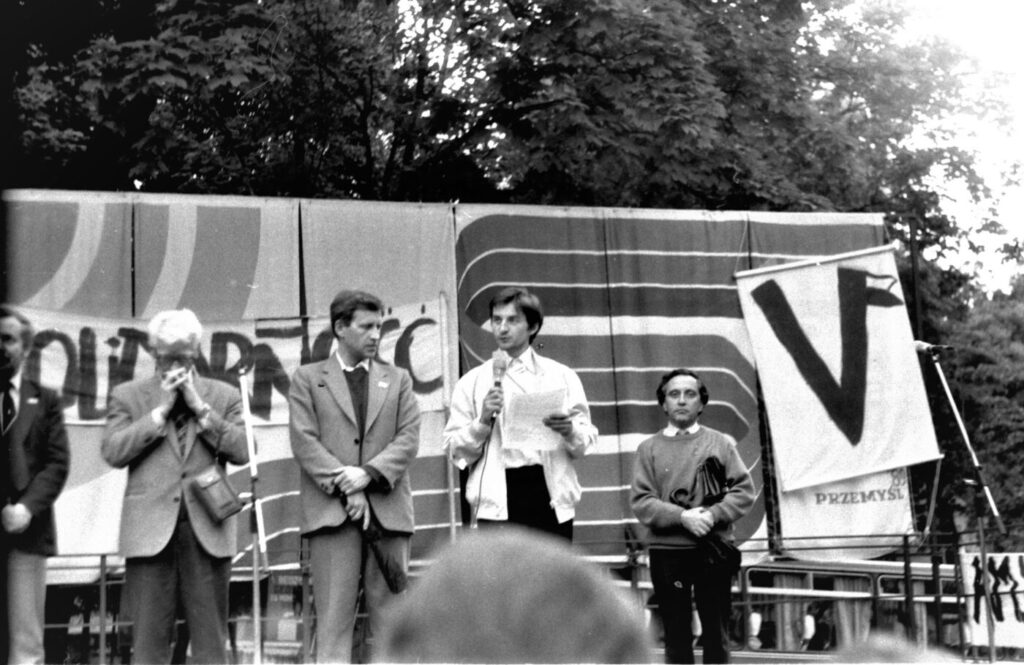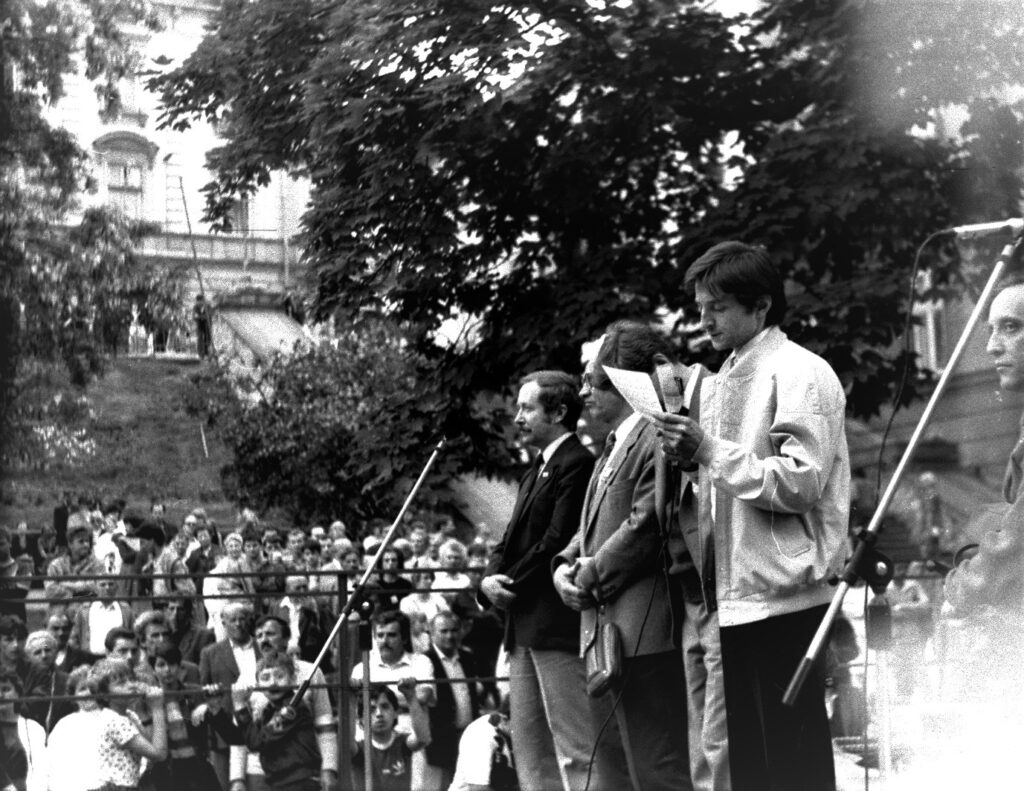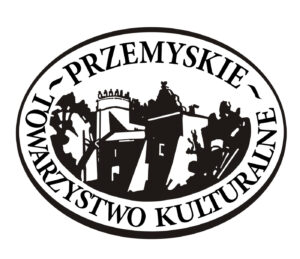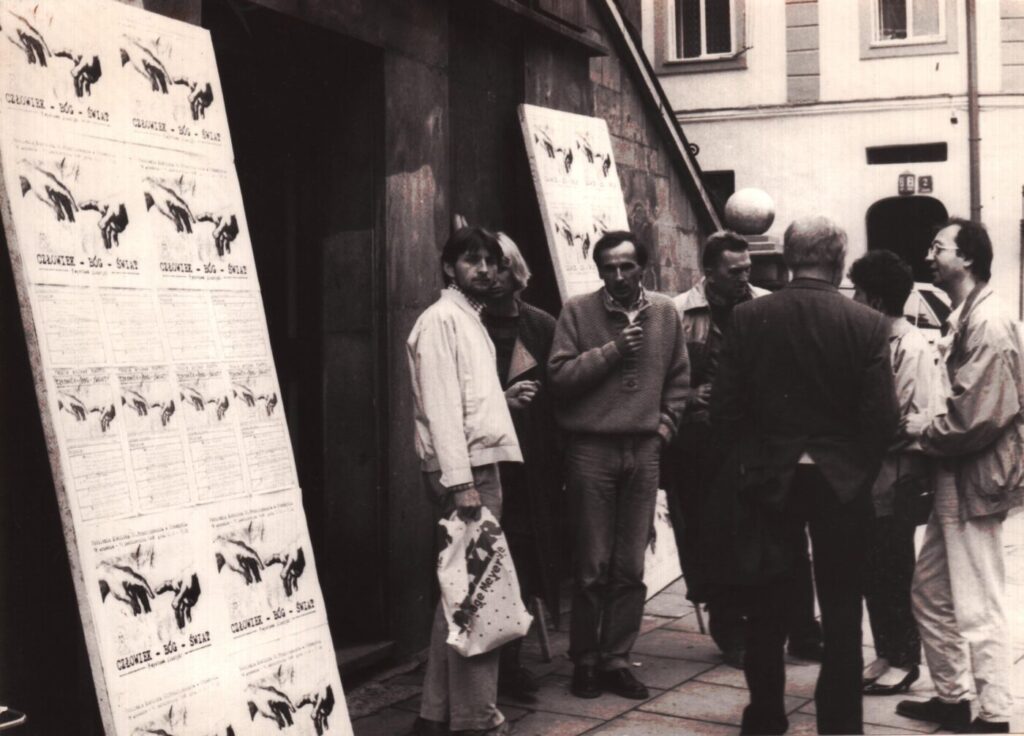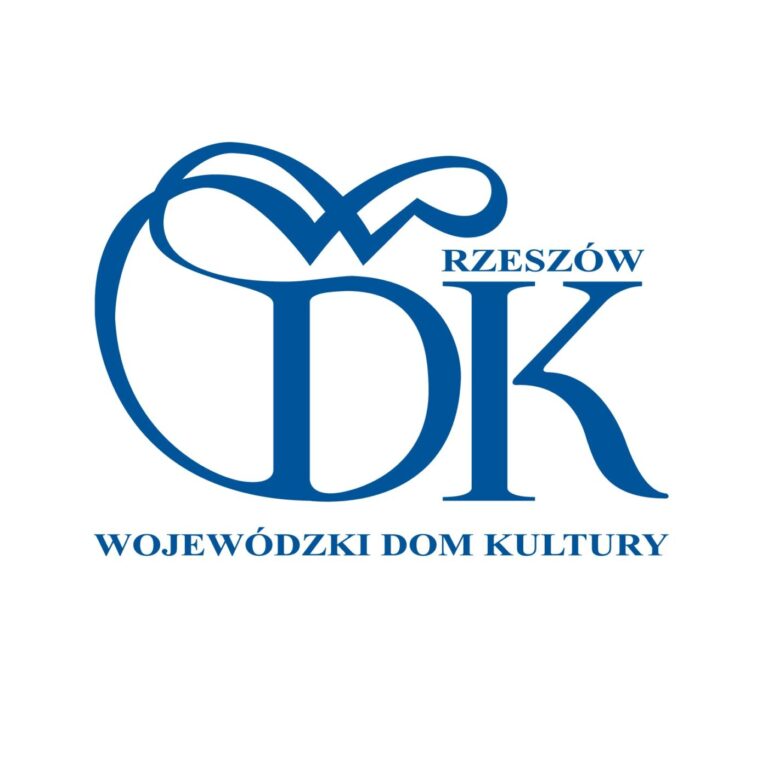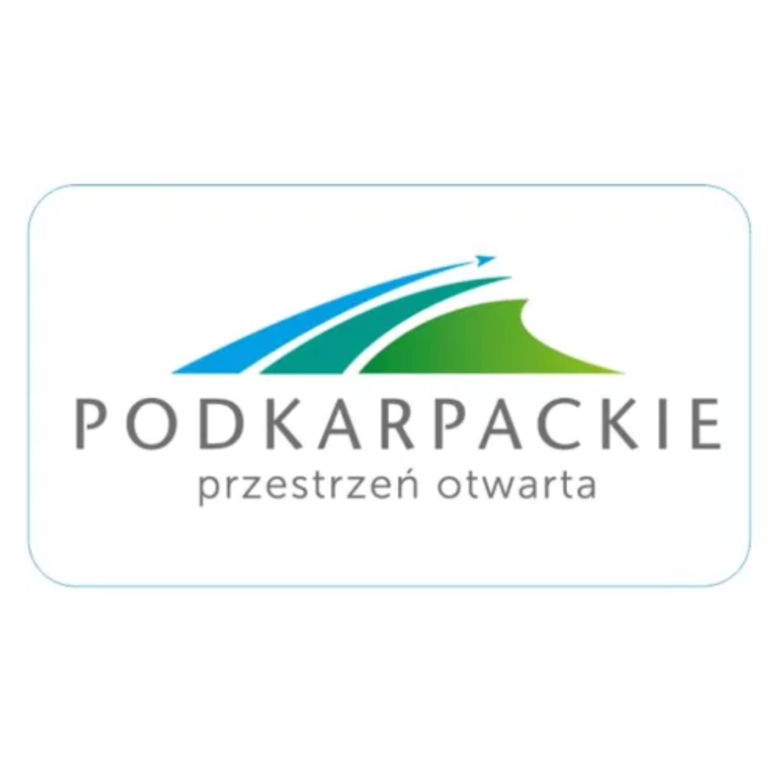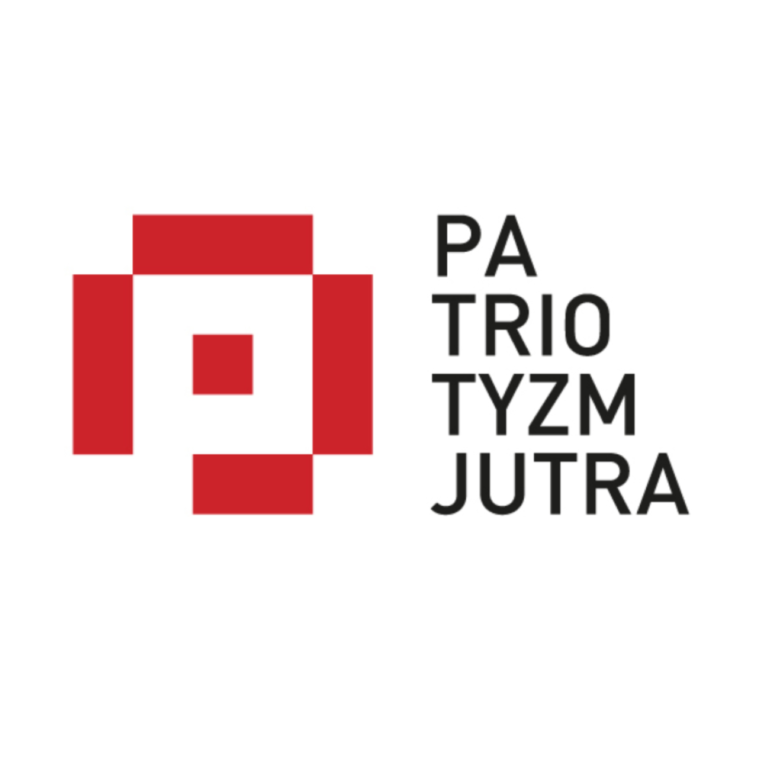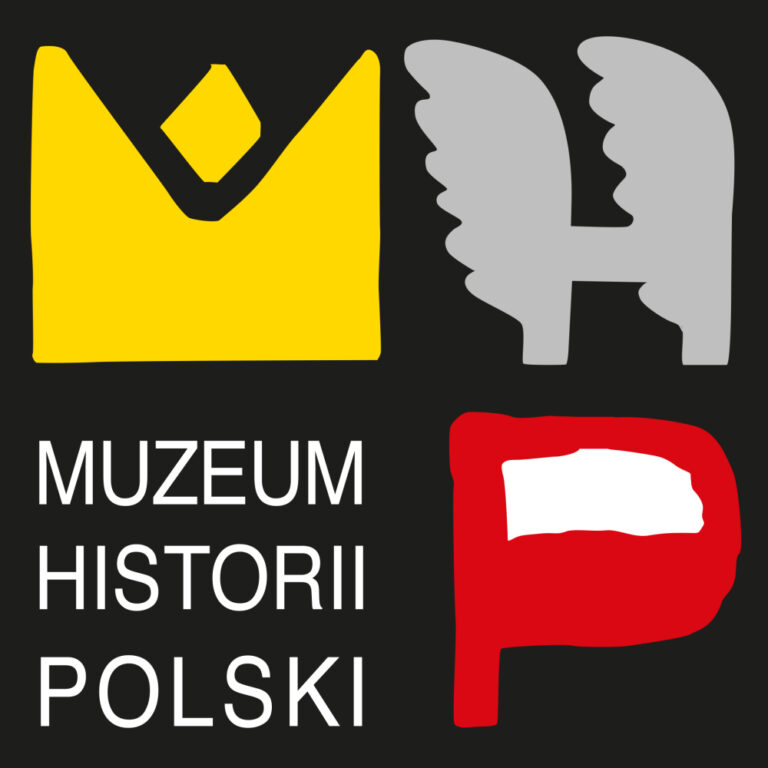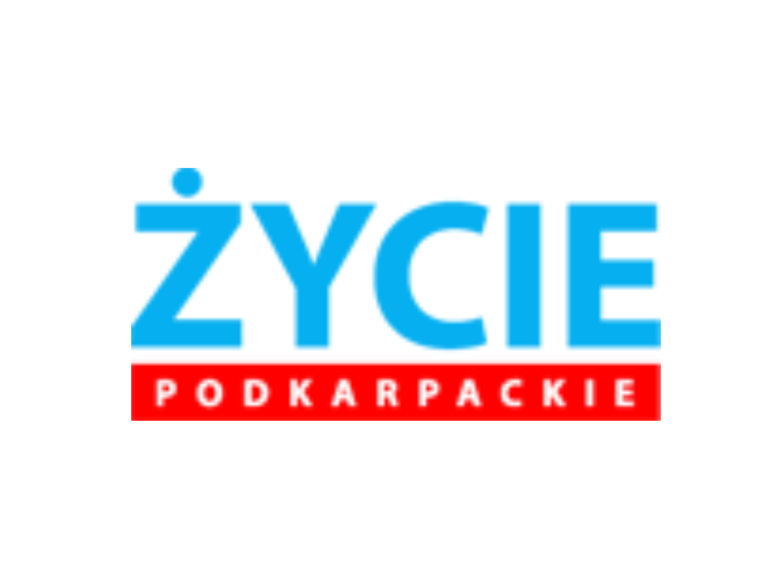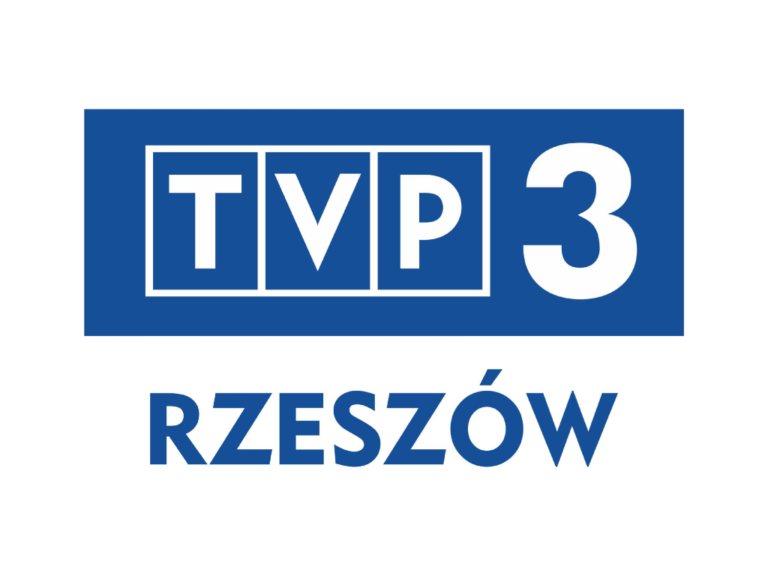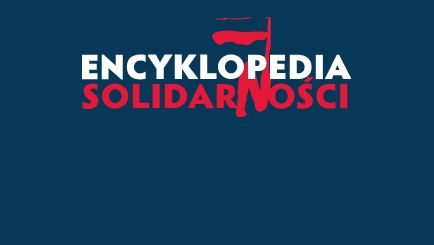
FROM THE ENCYCLOPEDIA OF SOLIDARITY IPN
Marek Kuchcinski, born August 9, 1955 in Przemyśl. Graduated from the Juliusz Słowacki High School I there (1974). 1974-1977 student at the Catholic University
https://encysol.pl/es/encyklopedia/biogramy/17095,Kuchcinski-Marek.html
.
.
(Excerpts from a book being prepared for publication)
JAN DRAUS, DARIUSZ IWANECZKO
From Przemyśl to big politics. Political biography of Marek Kuchcinski Przemyśl 2021
Reviewers: prof. dr. hab. Waldemar Paruch, prof. dr. hab. Ryszard Terlecki, dr. hab. Maciej Szymanowski
.
Chapter II
Against communist rule (1980-1989)
1. opposition activities
.
(...)"...By virtue of running a horticultural farm, Kuchcinski became involved in the creation and later activities of the Rural Solidarity. The first meeting, initiating the formation of the NSZZ of Individual Farmers "Solidarity," took place at the Przemyśl headquarters of the "Pax" Association on September 15, 1980, and was attended by nearly 30 people, including Zdzisław Malawski, Maciej Małagowski, Andrzej Mołoń, Wit Siwiec, Jerzy Bonarek and Marek Kuchciński. Subsequent meetings took place at the Solidarity headquarters on Kamienny Most, and then, in late November and early December, at the PSM-WSS "Społem" club on Wincentego Pstrowskiego Street (now Bishop Jakub Glazer). Participants included Jan Kulaj (1958-2020), later chairman of the NSZZ RI "S", Stanislaw Pajda and Jan Karus. Kuchciński organized the founding meetings of the Rural Solidarity structures together with Jerzy Bonark. They were held, among others, in Ostrow near Przemysl, Lętownia, Nehrybka and Hermanowice. Jerzy Bonarek later took part in the Ustrzycko-Rrzeszów strikes. Marek Kuchcinski supported the strikes because, as he recalls, he took up gardening (early production of accelerated vegetables) during the winter and spring seasons, which required a constant presence in Przemyśl. Jerzy Bonarek, a friend of Kuchcinski's, also ran a family horticultural farm together with his father, next door..."(...)
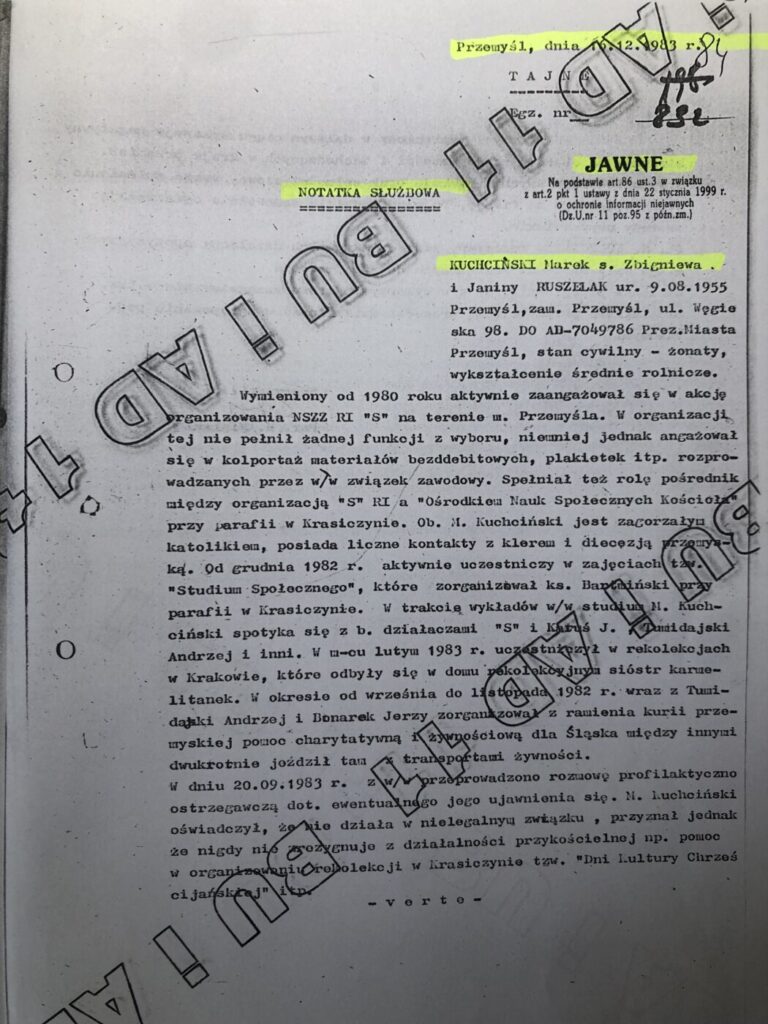
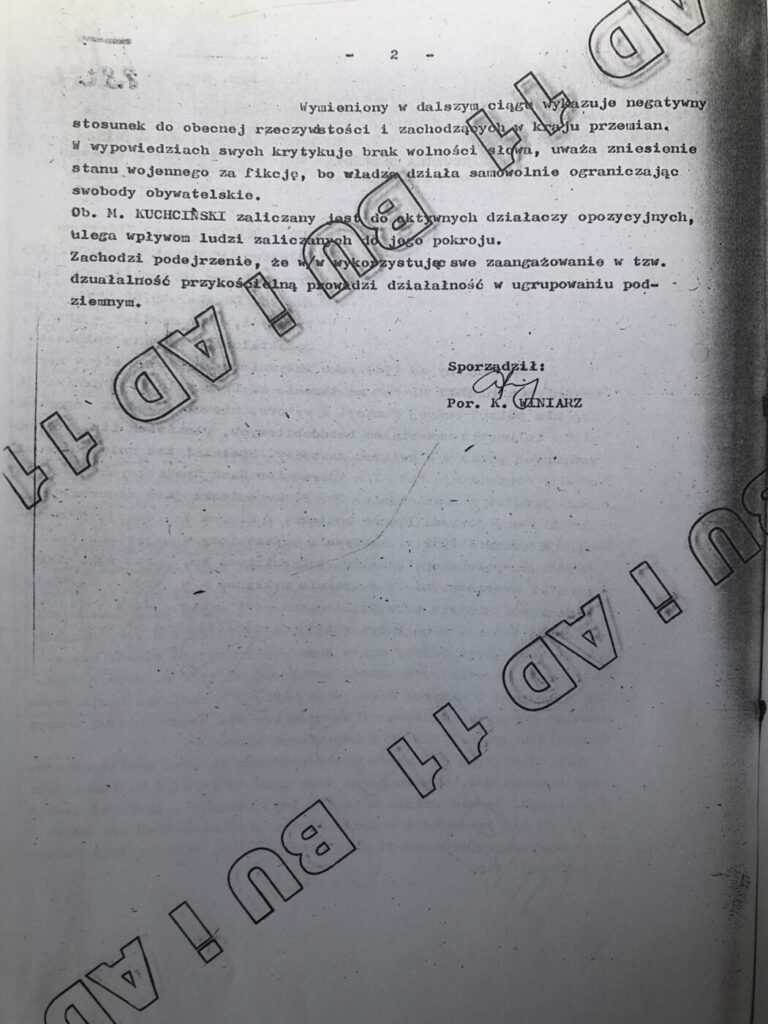
.
"(...)To the fullest extent, farmers' pastoral communities were active in the Przemyśl diocese, although opposition activists from cities also met as part of retreats organized by these communities. This form of activity was initiated by the Farmers' Chaplaincy (DR) in Krasiczyn, founded back in late 1982, initiated and animated by Father Stanislaw Bartminski. The first DR retreat in Krasiczyn was held on December 8-12, 1982, attended by 45 opposition activists, from ten dioceses across Poland. Their arrival was organized by Wienczyslaw Nowacki and Marek Kuchcinski. The participants of this meeting sent a special letter to the Holy Father John Paul II with information about the establishment of the first Farmers' Chaplaincy in Poland. A copy of this letter is in the possession of Fr. Bartminski. From the Przemyśl province, the most frequent participants in the monthly Krasiczyn meetings included Jan Karus, Augustyn Czubocha, Henryk Cząstka, and Marek Kuchcinski. DR meetings in Krasiczyn were observed by the communist authorities, who considered them to be opposition activities. On March 5, 1983, people who were returning from a meeting with Rev. Dr. Kazimierz Ryczan (1939-2017), then a lecturer at the Catholic University of Lublin, were dragged from the bus and detained, then interrogated. Marek Kuchcinski was held in custody at 26 1 Maja Street, in the so-called "hole", for 24 hours.
Pastoral ministries, in addition to their essential formative function, played an extremely important role as a forum for meetings and exchange of ideas. They were also the focus of aid activities, such as the great "Village to City" campaign. Kuchcinski reported years later: "In Silesia, we cooperated with the Committee for Assistance to the Internees, in which Mrs. Maria Klimowicz (1941-1995), Fr. Stanislaw's sister, was active, among others. This consisted of going around the parishes with Fr. Bartminski, making arrangements with individual parish priests that on such and such a day there would be a collection of food: potatoes, carrots, beets, flour, whatever people had. We then organized transport and traveled with Jurek Bonarek and the late Andrzej Tumidajski to various locations, such as Zapalow near Jaroslaw, or even near Jaslo; we packed the food on a truck and traveled to Silesia, where it was unloaded in the appropriate place, usually in a parish."
Bishop Ignacy Tokarczuk (1918-2012), a great advocate and promoter of the creation of community ministries, went even further when, in 1984, he encouraged the creation of a "bank of people of good will" who would be dedicated to providing material, medical and cultural assistance to all those in need. By stimulating social activity, the Ordinary of Przemyśl encouraged such activity that would bring recovery from the crisis and moral and political renewal. In doing so, he compared the 40 years of the Polish People's Republic to Christ's sojourn in the desert. Such theses were consistent with the philosophy of the "long march." Encouraging independent activism in society was not favorable from the point of view of the authorities and their security apparatus. The farmers' chaplaincies were seen by the authorities as a threat because "it is a structure that is meant to remove or replace the existing structure of organizations in the countryside." Chaplaincies were treated on a par with opposition activities. Hence, wherever they were created, the SB set up object cases. In the Rzeszow province, the circles of agricultural pastoralists were subjected to control within the framework of a case code-named Shepherd, established in February 1984. It was not completed until October 20, 1989.
The example of the pastoral ministry in Krasiczyn radiated to other parishes. In February 1984, a group of parishioners in Stubno notified their parish priest of their desire to organize a Study of the Social Doctrine of the Church, as part of the DR. This initiative was countered by the SB. According to the authorities, the initiatives to organize the DR came from the Bishop of Przemyśl. It was believed that he not only inspired, but even gave orders in this regard, such as in the case of the DR in Jaroslaw. In the Przemyśl province, a DR was also established in Zarzecz. Fr. Bartminski, who traveled to various parishes, where he gave instructions on how to organize community work, was instrumental in organizing such ministries in the diocese. On February 1, 1984, he encouraged parishioners in Lutcza to form a DR. During his speech, he outlined the goal of the DR's activities, which was to stimulate farmers and their families to learn about their native history and to educate them in respect for the land so that they would be able to defend it against exploitation and oppression. In Przemyśl, Department IV of the WUSW established an object case, code-named Community, on May 27, 1985, concerning "lay activists in the pastoral care of farmers." As the head of Department VI of the WUSW, Capt. Michal Buczkowski, reported, in January 1986 the SB in Przemyśl had nine undercover collaborators under this case. A year later, Department VI already had 37 TWs. Capt. M. Tabisz, who was in charge of the case, counted among the active DR activists: Jan Karus, Henryk Cząstka, Waldemar Mikolowicz (1938-2017), Jerzy Bonark, Marek Kuchcinski, Stanislaw Diabin (1950-2006), Jaroslaw Sliwinski, Mieczyslaw Stopyra (1932-2014)33, Tadeusz Trelka, Augustyn Czubocha and Wladyslaw Balicki. After Tabisz left the SB in 1986, Lt. Jan Olchowy took over the handling of the case.(...)"
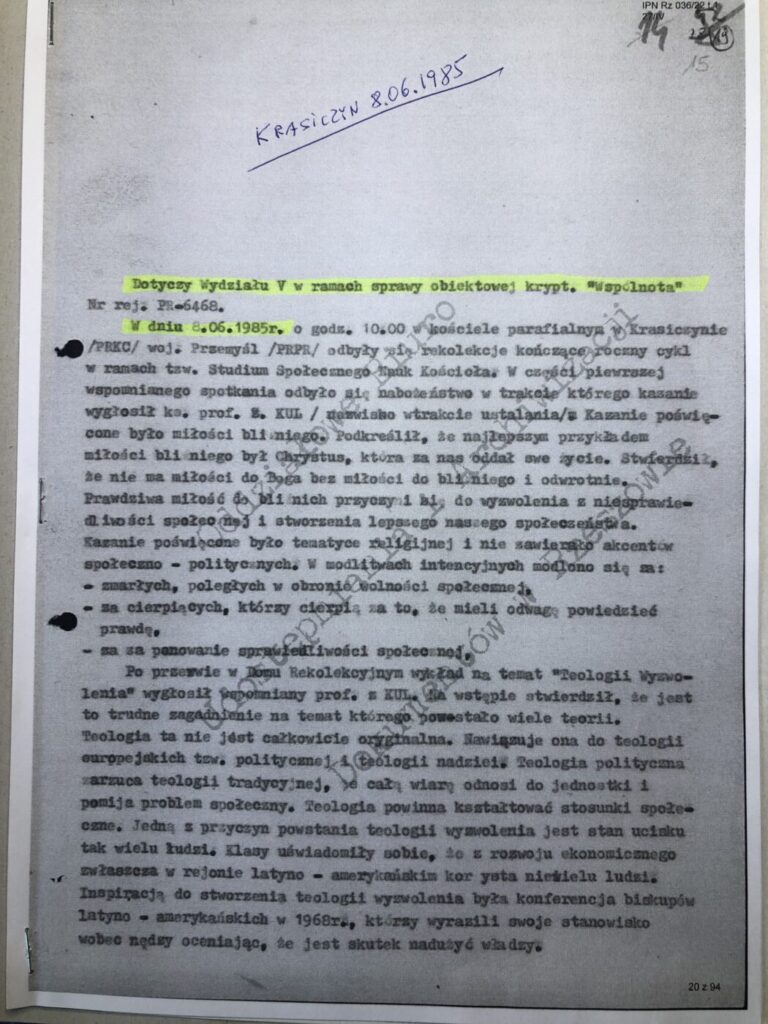
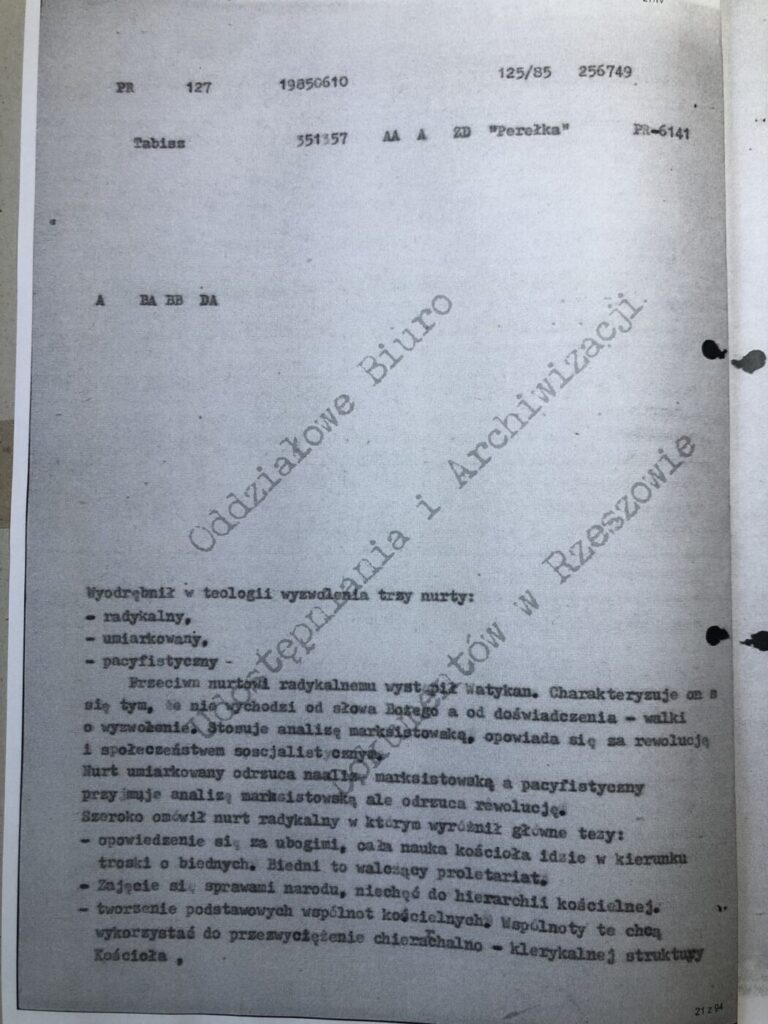
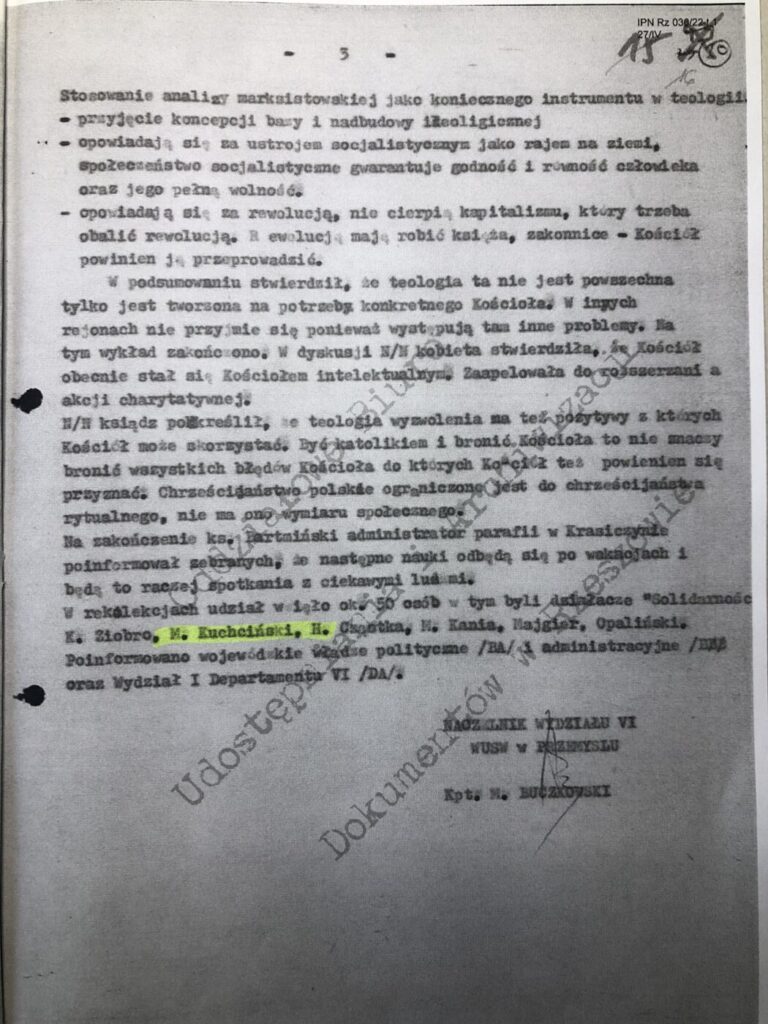
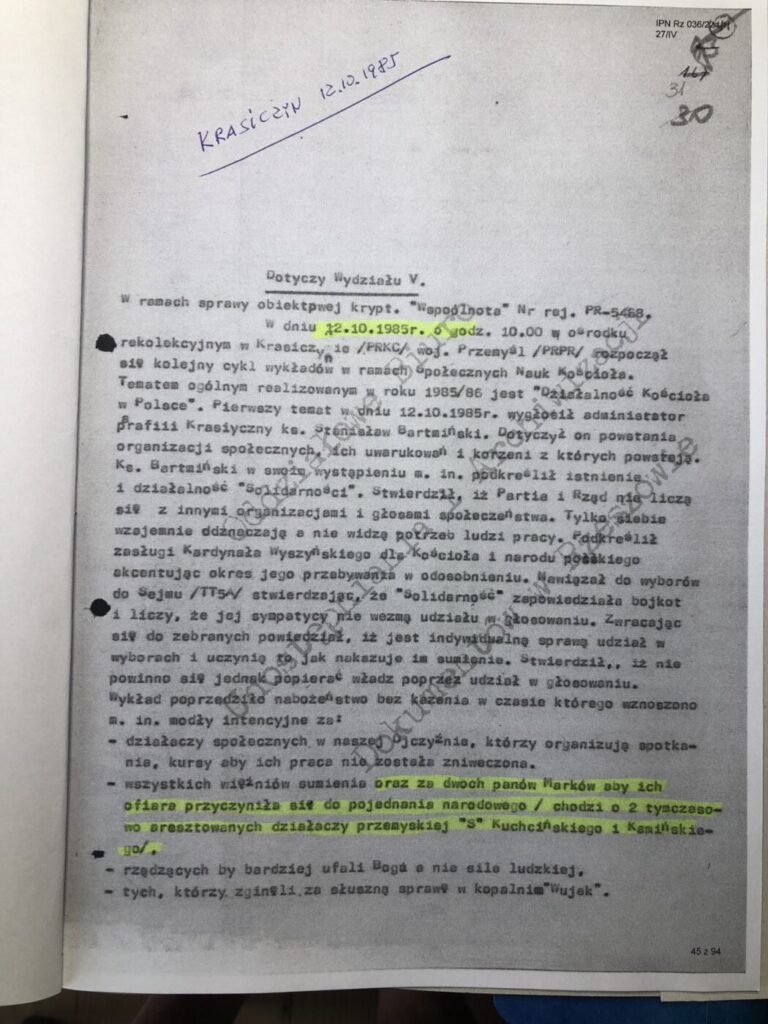
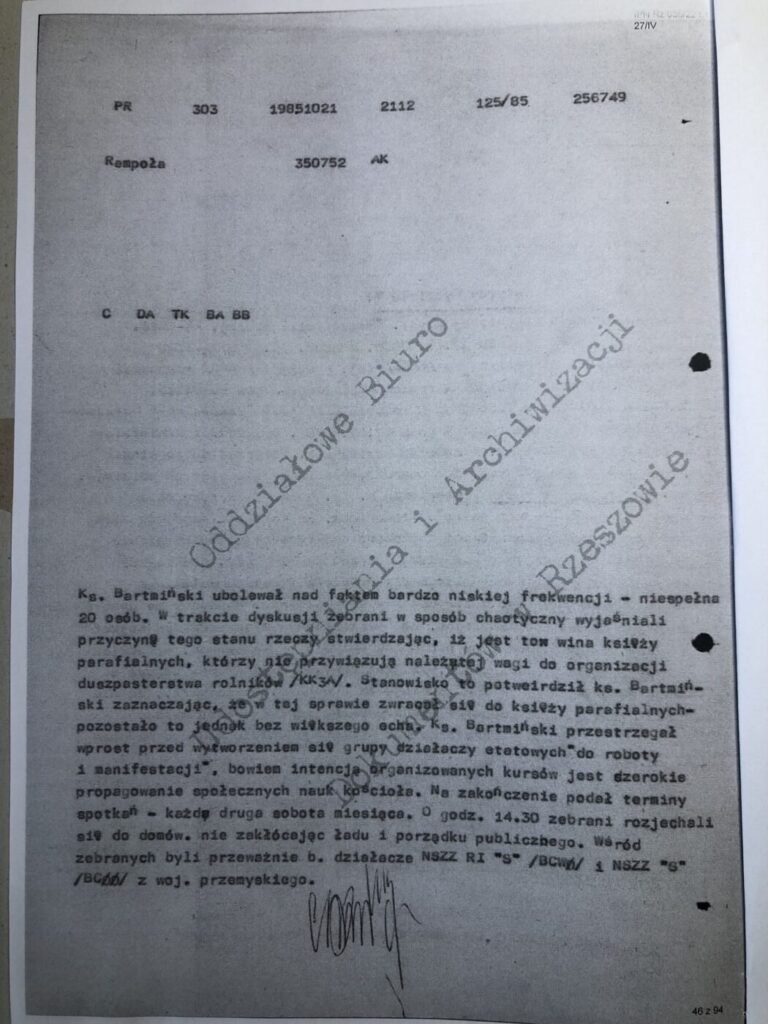
(...)"...The head of the SB in the Ministry of the Interior, Major General Władysław Ciastoń, issued a "Decision" on August 17, 1985, in which he ordered active measures against underground structures throughout Poland. The key rationale for the SB's activation was the ongoing election campaign for the Sejm. The implementation of Ciastoń's decision was severely felt by the Przemyśl underground, whose activities were briefly disorganized. The Security Service established on September 26 that the group of people who were to carry out the distribution of leaflets calling for a boycott of the elections included: Stanislaw Baran (1947-2016), Andrzej Kucharski, Jan Ekiert, Edward Wańczak (1946-?), Marek Kaminski and Marek Kuchcinski. On September 27, searches were conducted and significant quantities of leaflets and non-debit literature were uncovered. Five SB officers, including Zdzislaw Gancarz and Boguslaw Kozek, showed up at Marek Kuchcinski's home on Węgierska Street at 6:40 am. The apartments of the other activists were also searched. Detained were: Kaminski (RKW), Kuchcinski (OKOR) and Kucharski.
At Kaminski's home, copies of a duplicator matrix were additionally found. Kuchcinski was taken from copies of underground publications and a Hebros typewriter, which was later returned to him. In addition to book publications and volumes of poetry (including Zbigniew Herbert's Report from a Besieged City and Julian Kornhauser's) and cassettes and copies of "Busola," cardboard boxes with the inscription were questioned at Kuchcinski's home: "Guest, feel safe, there is no socialism in this house, the People's Republic begins beyond the fence." Pre-trial detention was applied to Kaminski and Kuchcinski. They all refused to testify. Also the interrogated Stanislaw Baran did not incriminate anyone with his testimony. Information about the arrest of these activists was announced in the churches of Przemyśl, where prayers were offered for their release. In turn, their families were given care and material assistance.
Kuchcinski was imprisoned in a Jaroslaw jail. There he refused to eat, which he explained by his liver diet. At the same time, Wienczyslaw Nowacki was arrested and also imprisoned in a Yaroslavl detention center, where he announced a hunger strike, which he led for 42 days. The investigation, commissioned by the Provincial Prosecutor's Office, was led by Jozef Piechota, while the defense of the defendants was undertaken by attorneys Jan Hołysz (1954-2018) and Andrzej Matusiewicz. Finally, on November 22, both defendants were released from custody. The investigation against Kucharski was discontinued due to insufficient evidence of guilt. On February 12, 1986, the prosecutor filed an indictment against Kaminski and Kucharski. The other two defendants evaded attending the hearings. Finally, on October 10, 1986, the Przemyśl District Court discontinued the proceedings. Kaminski and Kuchcinski made a statement that they would not return to the path of forbidden activity by law. Certainly, the arrest and pending proceedings against one member of the leadership of the Przemyśl RKW, as well as against one of the leaders of the activities of the Przemyśl OKOR, affected the disorganization of opposition activities, as well as raised fears that more arrests would follow. Although there was a slowdown in the activities of the Przemyśl underground structures, both Kuchcinski and Kaminski did not give up their underground activities..."
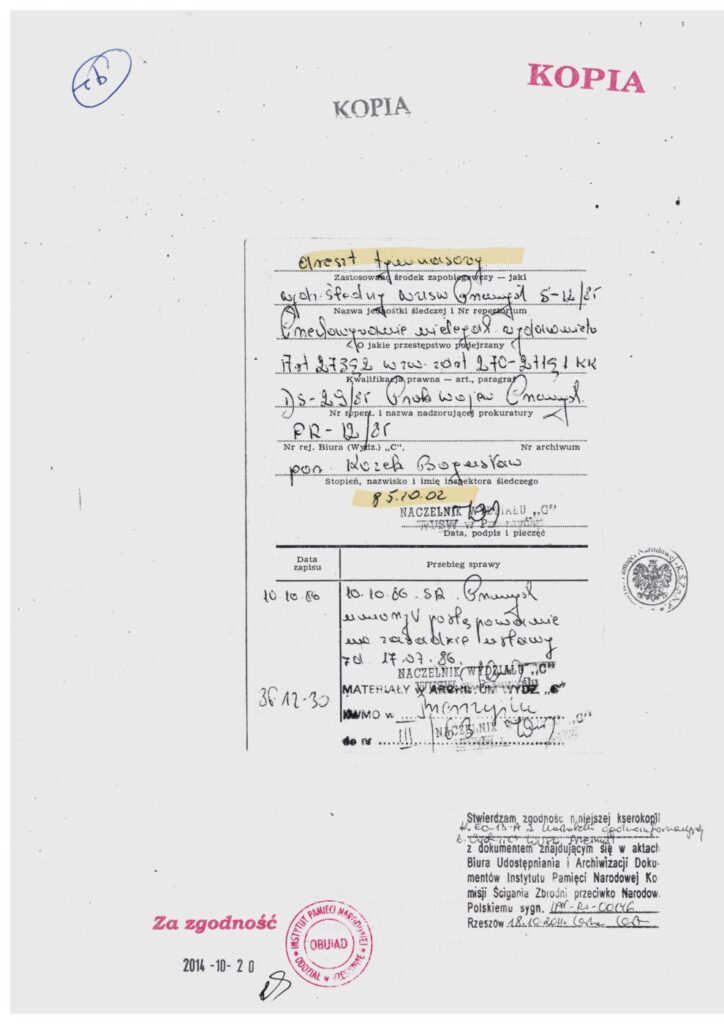
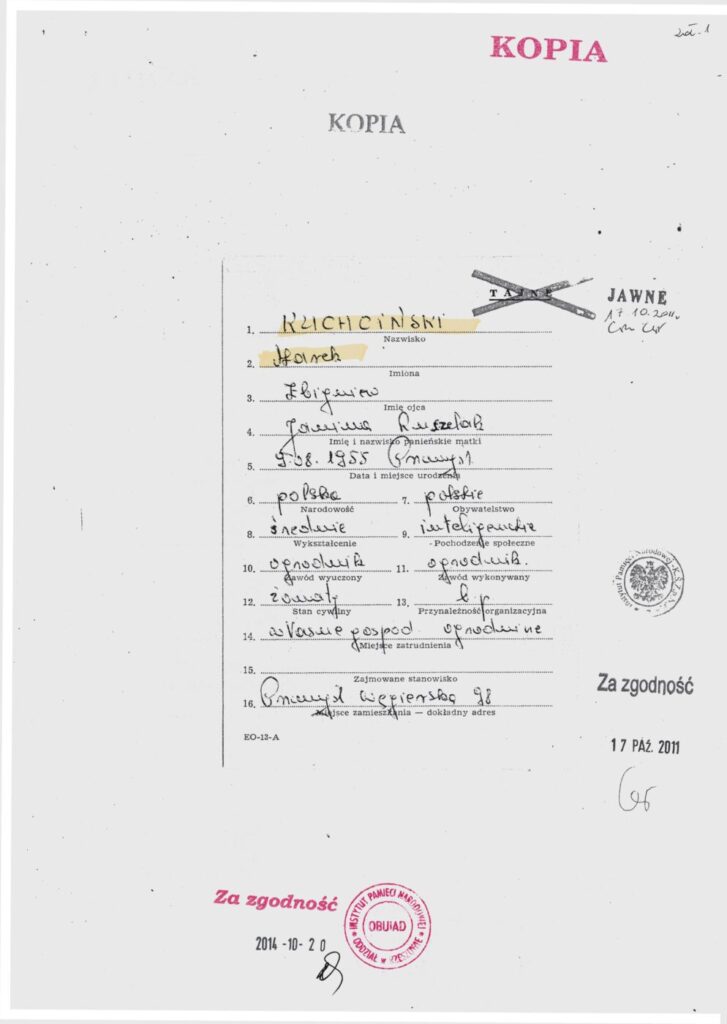
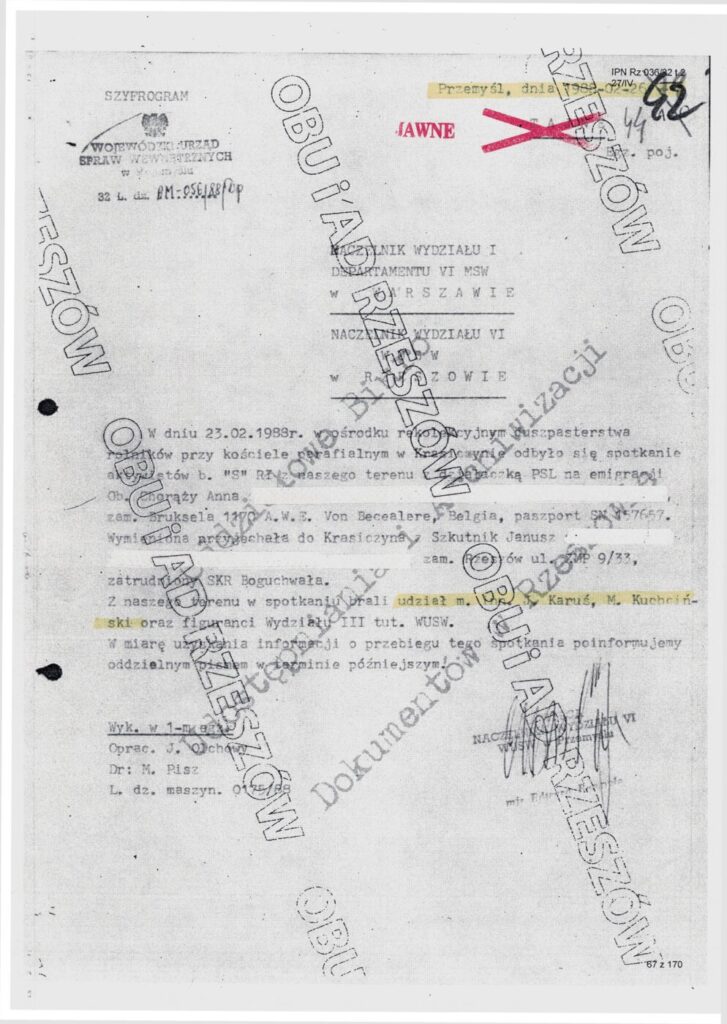
4th Civic Committee
(...) "After the roundtable talks concluded on April 5, 1989, one of the key findings of which was the decision to hold partially free elections to the Sejm and Senate, the opposition party began intensive activities. Even before the round-table talks began, on December 18, 1988, a Civic Committee was established under the chairmanship of NSZZ Solidarity Chairman Lech Walesa.
The Civic Committee of the "S", whose task was to select candidates for parliament and conduct an election campaign, was constituted in Przemyśl on April 15, 1989. It was set up by two chairmen of Solidarity structures: workers' Marek Kaminski and farmers' Jan Karus. At the beginning, the provincial KO had 26 members. After a few days it increased to 45. Stanislaw Zolkevich (1935-2019) became its chairman.
Marek Kuchcinski, who is highly trusted, joined the KO and, after Jacek Mleczko's resignation, took over as spokesman already during the election campaign. His father, Zbigniew Kuchcinski, who is highly respected among various Przemyśl circles, also joined the KO "S" in Przemyśl.(...)"
.
"(...)In the end, from the Przemyśl province, Tadeusz Ulma (1923-1996) and Jan Musial ran for a seat in the Senate, while Janusz Onyszkiewicz and Tadeusz Trelka ran for a seat in the Sejm.
Conducting an effective election campaign became a top priority. Marek Kuchcinski, as a member of KO and its spokesman, was one of the main people involved in campaign activities. He put all his time at his disposal and also made his car available. He was the biggest support for KO's full-time secretary Waldemar Wiglusz; in fact, they both fulfilled the duties of the head of the election office, located at the current Legion Square(...)."
.
.
